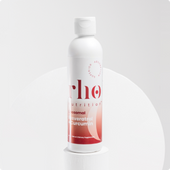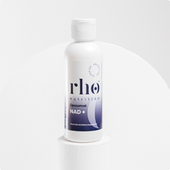Curcumin is a natural compound found in turmeric, a popular spice commonly used in Indian and Middle Eastern cuisine. In recent years, it has received significant attention for its potential anti-inflammatory and anti-cancer effects. One area of research that has gained increasing attention is the potential use of curcumin in reducing gut inflammation that can cause digestive issues, including Irritable Bowel Syndrome (IBS).
IBS is a chronic gastrointestinal disorder that affects up to 20% of the population. It is characterized by symptoms such as abdominal pain, bloating, and changes in bowel habits. While the exact cause of IBS is unknown, it is thought to be related to inflammation in the gut. Several studies have suggested that curcumin may have anti-inflammatory effects in the gut that could help alleviate symptoms of IBS and other digestive issues.
One of the ways in which curcumin exerts its anti-inflammatory effects is through its ability to modulate the activity of several inflammatory signaling pathways in the gut. For example, curcumin has been shown to inhibit the activity of Nuclear Factor-kappa B (NF-kB), a key signaling pathway involved in the inflammatory response. This inhibition of NF-kB leads to a decrease in the production of pro-inflammatory cytokines, which are molecules that contribute to gut inflammation.
Several studies have also shown that curcumin can improve gut barrier function, which is important in preventing gut inflammation. The gut barrier is made up of a layer of cells that line the gut and prevent harmful substances from entering the bloodstream. When the gut barrier is compromised, it can lead to inflammation and other digestive issues. Curcumin has been shown to strengthen the gut barrier by increasing the production of tight junction proteins, which help maintain the integrity of the gut barrier.
In addition to its anti-inflammatory effects, curcumin has also been shown to have potential benefits for other digestive issues, including inflammatory bowel disease (IBD) and colorectal cancer. In a study conducted on mice with IBD, curcumin supplementation reduced inflammation in the gut and improved gut barrier function. Another study conducted on humans found that curcumin supplementation reduced inflammation markers in patients with IBD.
Curcumin has also been shown to have potential anti-cancer effects in the gut. In a study conducted on mice with colorectal cancer, curcumin supplementation reduced tumor growth and improved survival rates. Another study conducted on humans found that curcumin supplementation reduced the growth of precancerous lesions in patients with colorectal cancer.
In conclusion, curcumin is a natural compound found in turmeric that has potential anti-inflammatory and anti-cancer effects in the gut. Several studies have suggested that curcumin may be beneficial in reducing gut inflammation and alleviating symptoms of IBS and other digestive issues. While more research is needed to fully understand the effects of curcumin in the gut, its potential benefits make it an exciting area of research for those looking to improve their digestive health. If you are considering taking curcumin supplements, it is important to speak with your healthcare provider to ensure that it is safe for you and your individual needs.













Leave a comment